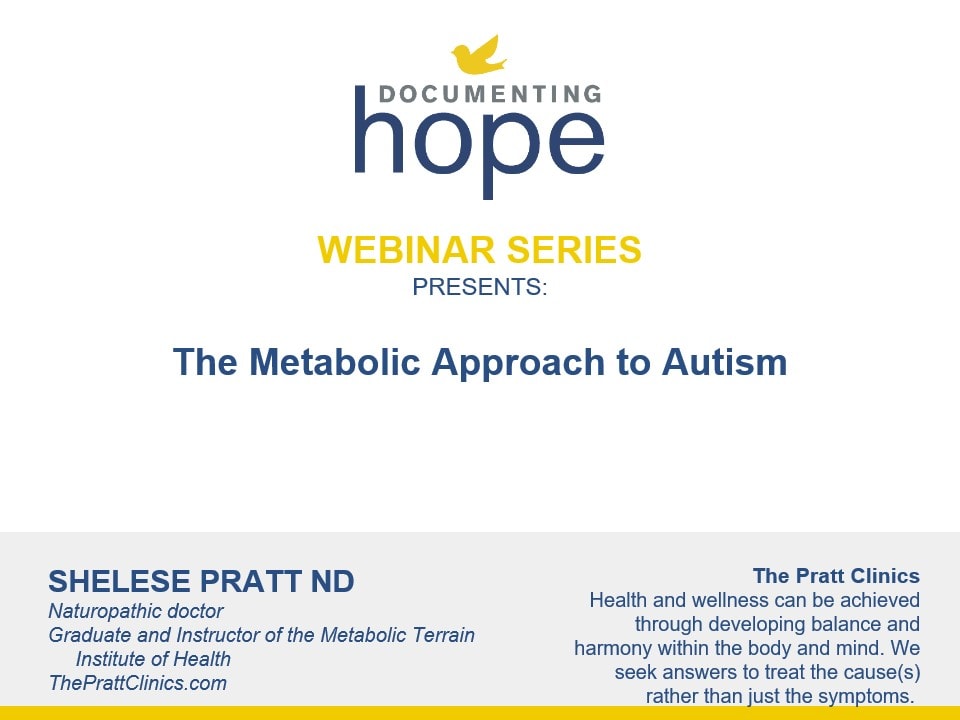What Is Metabolic Psychiatry?
Metabolic psychiatry is an emerging field that explores the connection between blood-sugar dysregulation and mood disorders, behavioral challenges, mental health challenges and neurodevelopmental challenges. Research shows (see Sources & References, below) that correcting blood-sugar imbalances can greatly improve symptoms of mental health conditions.
Mental disorders are metabolic disorders of the brain.
Which Psychiatric Conditions Are Affected by Blood-Sugar Dysregulation?
The probable mechanism for most of the symptoms associated with the following psychiatric conditions is that brain cells can become insulin resistant, as can other types of cells in the body. Thus, the brain is deprived of its fuel of choice, glucose. Glucose is not a stable supply of energy, especially when there is a large variation of blood-sugar levels, as typically happens with a processed-food diet. Because glucose burns quickly, it can spike blood-sugar levels too high after sugar consumption then drop to sometimes hypoglycemic levels shortly afterward. This phenomenon is what some refer to as the “blood-sugar rollercoaster.”
Almost all peer-reviewed medical research studies point to the use of the ketogenic diet for controlling symptoms of the pscyhiatric condition in question (see Sources & References, below). Because this diet is low-carbohydrate and high-fat, following it forces the body and brain to run on ketone bodies derived from fat instead of the less-stable glucose. The ketogenic diet has been used for decades to minimize or eliminate seizures and should only be done in coordination with a knowledgeable healthcare professional, especially in the case of children. Incidentally, the ketogenic diet is also being used with some success in reversing symptoms of diabetes and cancer.
Other potential mechanisms of blood-sugar dysregulation leading to symptoms of mental health conditions are inflammation and neurotransmitter imbalances. Chronic inflammation is a hallmark of chronic health condition, and blood-sugar fluctuations can disrupt the balance of neurotransmitters such as serotonin and dopamine, which are necessary for mood regulation. One of the reasons that Julia Ross, author of The Mood Cure, has so much success in treating addictions of all stripes may be due to the elimination of sugar from the diet.
ADHD
Increased blood sugar in the brain can negatively affect the blood flow and function to and within the brain, especially the prefrontal cortex. This action can lead to symptoms such as spaciness, inattention and the inability to focus. These symptoms are typical of an ADHD diagnosis. Daniel Amen MD was one of the first doctors who brought up this notion, and he says that “most people with ADD/ADHD do better on a higher-protein, lower-carbohydrate diet that enhances focus.” This kind of diet, although not the ketogenic diet, can be helpful for stabilizing blood-sugar levels.
One of our documented success stories is of a child with an ADHD diagnosis whose mother also had a child with type 1 diabetes. The family committed to eliminating all sugar (in its “100 forms”), wheat, all grains, rice, potatoes and corn to help the child with type 1 diabetes better control his blood sugar. The surprising side benefit was that another child with ADHD lost his diagnosis after the family made the dietary switch. You can watch John’s success story here.
Depression
Metabolic syndrome affects almost a third of individuals with major depression. Medical research shows that even brain cells can become insulin resistant, thus depriving them of the energy they need to function. Reducing insulin spikes and insulin resistance has been shown to help people lose their diagnosis of depression.
Bipolar Disorder and Schizophrenia
This clinical trial protocol states that “(m)ore recent data from open clinical trials have pointed toward a dramatic reduction in psychotic, affective, and metabolic symptoms in both schizophrenia and bipolar affective disorder” with the use of the ketogenic diet. Children with these challenges may experience heightened mood instability due to irregular blood sugar levels. In addition, elevated blood sugar can exacerbate symptoms, leading to more severe mental health issues.
Anxiety Disorders
Both depression and anxiety are common comorbidities of type 2 diabetes. Anxiety is a common symptom of hypoglycemia, as mentioned above. Irritability, “hangriness”, shaking, tunnel vision, higher pulse, weakness and nausea are also other common symptoms. What’s interesting is that this study found that glucose intolerance induces anxiety-like behaviors independent of insulin resistance. This means that a person doesn’t have to have metabolic dysfunction to have anxiety from eating sugar. Sugar itself may elicit an intolerance, similar to other intolerances to foods such as dairy, gluten, eggs, corn, soy and others.
Autism
About a third of children with autism also have seizures. It is well known that seizures can be significantly decreased with the ketogenic diet because it causes the body and brain to run on ketones rather than glucose. However, even children with autism who don’t have seizures have been shown to respond well to a ketogenic diet, implying once again that the brain prefers ketones as a constant, steady source of fuel rather than the fickle and undependable glucose.
In addition, the hyploglycemic state that often occurs after a blood-sugar spike from consuming too much simple carbohydrates can result in a release of glutamate in the brain, which can cause symptoms of autism. In fact, children with autism whose parents put them on a low-glutamate diet can sometimes reduce or eliminate symptoms of autism, as shown in our twins’ case report and also in this success story.
Alzheimer’s
Although Alzheimer’s is not a disorder that affects children, it needs to be pointed out that it is what is sometimes referred to as “type 3 diabetes” or “diabetes of the brain”. Poorly controlled blood sugar increases the risk of developing Alzheimer’s, most likely because brain cells can become insulin resistant. This study found that “(r)estoring hippocampal glucose metabolism rescues cognition across Alzheimer’s disease pathologies.” Imagine what correcting blood-sugar dysregulation can do for those without Alzheimer’s. Also, could optimizing blood sugar help prevent the onset of Alzheimer’s? What about other chronic conditions such as Parkinson’s or ALS (Amyotrophic Lateral Sclerosis)?
What Are Ways to Optimize Blood Sugar?
Research listed in the Sources & References section, below, points to the idea that optimizing blood sugar is necessary for improving symptoms of mental health conditions. Here are several strategies to regulate blood sugar more easily:
Eliminating Sugar
Sugar consumption in all of its forms causes glucose spikes that can negatively affect the brain, as discussed above. “Sugar” means not just table sugar but also sweet foods such as honey, dried fruit, tropical fruit, molasses, agave and most other sweeteners. The hard part about quitting sugar is that consuming it causes a quick dopamine hit, much like a dose of cocaine does!
Cutting out Processed Foods
Processed foods often contain sugar as well as other undesirable ingredients. They are typically made with grain flours that have been ground to remove almost all of the fiber, which is one of the factors that prevents blood sugar from spiking quickly. In fact, white bread has roughly the same glycemic load as a candy bar! Beware of foods that say “made with whole grains” because all that means is that the manufacturer started with a whole grain and likely ground out all or most of the fiber. Instead, opt to eat whole, unprocessed grains or, better yet, eliminate grains to see if that helps with blood-sugar regulation.
Adding in Lots of (the Right Kinds of) Fats
Parents may want to ease into dietary changes by initially having their child eat a whole-foods diet (such as the Whole 30 diet), transitioning to a Paleo diet, then ultimately adopting a ketogenic diet (under the supervised care of a knowledgeable professional) if warranted. Not only is the glycemic load lowered by following any of these diets, but adding in more fats can also help to keep insulin and blood sugar from spiking. As the “Glucose Goddess”, Jessie Inchauspe’ notes in her book Glucose Revolution, “put some clothes on your carbs”, meaning add lots of fat when eating carbohydrates. The ketogenic diet would have the most fat in the diet as a percentage, which is what allows for the higher production of ketones and better regulation of blood sugar.
By “the right kinds of fats”, we don’t mean vegetable oils, such as corn oil, canola oil, safflower oil, sunflower oil, soybean oil or other nut or seed oils. Our Scientific Director and Principal Investigator, Chris D’Adamo PhD, co-authored a study about how these seed oils contain high levels of linoleic acid. He noted that, “an excessive intake of LA leads to the formation of oxidized linoleic acid metabolites (OXLAMs), impairments in mitochondrial function through suboptimal cardiolipin composition, and likely contributes to many chronic diseases that became an epidemic in the 20th century, and whose prevalence continues to increase.”
Therefore, “the right kinds of fats” are monounsaturated fats such as olive and avocado oils and saturated fats such as butter (if tolerated), ghee (if tolerated), coconut oil, MCT (Medium Chain Triglycerides) oil, beef tallow, chicken schmaltz, duck fat and other animal fats.
Fasting
Fasting can help with achieving ketosis, although we don’t recommend this option for children unless your child’s healthcare practitioner authorizes it. However, you may be able to swing cutting out snacks (and allowing the gut and immune system to rest) by giving your child more filling meals that always have ample amounts of protein, fat and fiber.
Frequent Monitoring
Regularly checking biomarkers such as blood glucose levels, ketone levels, hemoglobin A1C levels and insulin levels can provide insights into metabolic health and guide dietary adjustments. We recommend purchasing a home-glucose monitoring kit, which can be bought online and in most pharmacies, as can blood ketone monitors. Some people choose to go a step further and get a CGM (Continuous Glucose Monitor), but this requires a doctor’s prescription and a bluethooth connection to a smartphone application.
Physical Activity
Engaging in regular physical activity can help maintain stable blood sugar levels. Any kind of activity is helpful (even doing chores!), but strength training in particular “is more effective than aerobic exercise for improving glycaemic control”.
In Conclusion
Metabolic psychiatry offers a paradigm shift in understanding and treating mental health conditions. By focusing on the role of metabolism, particularly blood-sugar regulation, new pathways for potential symptom reversal for a variety of mental health conditions have opened.
About Maria Rickert Hong CHHC
Maria Rickert Hong is a Co-Founder of, and the Education and Media Director for, Documenting Hope.
She is a former sell-side Wall Street equity research analyst who covered the oil services sector at Salomon Smith Barney and Lehman Brothers under Institutional Investor #1 ranked analysts.
Later, she covered the gaming, lodging & leisure sector at Jefferies & Co. and Calyon Securities. She quit working on Wall Street when her first son was born.

Prior to working on Wall Street, she was a marketing specialist for Halliburton in New Orleans, where she also received her MBA in Finance & Strategy from Tulane University.
She is the author of the bestselling book Almost Autism: Recovering Children from Sensory Processing Disorder and the co-author of Brain Under Attack: A Resource for Parents and Caregivers of Children with PANS, PANDAS, and Autoimmune Encephalitis. She is a co-author of Reversal of Autism Symptoms among Dizygotic Twins through a Personalized Lifestyle and Environmental Modification Approach: A Case Report and Review of the Literature, J. Pers. Med. 2024, 14(6), 641.
Maria is also a Certified Holistic Health Counselor. Her work can be found on DocumentingHope.com, Healing.DocumentingHope.com, Conference.DocumentingHope.com and MariaRickertHong.com
Still Looking for Answers?
Visit the Documenting Hope Practitioner Directory to find a practitioner near you.
Join us inside our online membership community for parents, Healing Together, where you’ll find even more healing resources, expert guidance, and a community to support you every step of your child’s healing journey.
Sources & References
Ai, Y., et al. The relationship between diabetes mellitus and attention deficit hyperactivity disorder: A systematic review and meta-analysis. Front Pediatr. 2022 Sep 29:10:936813.
Al-Khatib, Y., et al. Depression and Metabolic Syndrome: A Narrative Review. Cureus. 2022 Feb 12;14(2):e22153.
Al-Onaizi, M., et al. Glucose intolerance induces anxiety-like behaviors independent of obesity and insulin resistance in a novel model of nutritional metabolic stress. Nutr Neurosci. 2024 Oct;27(10):1143-1161.
Blázquez, E., et al. Significance of Brain Glucose Hypometabolism, Altered Insulin Signal Transduction, and Insulin Resistance in Several Neurological Diseases. Front Endocrinol (Lausanne). 2022 May 9:13:873301.
Brenton, J.N., et al. Phase II study of ketogenic diets in relapsing multiple sclerosis: safety, tolerability and potential clinical benefits. J Neurol Neurosurg Psychiatry. 2022 Jun;93(6):637-644.
Brietzke, E., et al. Ketogenic diet as a metabolic therapy for mood disorders: Evidence and developments. Neurosci Biobehav Rev. 2018 Nov:94:11-16.
Calabrese, L., et al. Complete remission of depression and anxiety using a ketogenic diet: case series. Front Nutr. 2024 May 14:11:1396685.
Campbell, I.H., et al. Ketosis and bipolar disorder: controlled analytic study of online reports. BJPsych Open. 2019 Jul 4;5(4):e58.
Campbell, I.H., et al. The metabolic overdrive hypothesis: hyperglycolysis and glutaminolysis in bipolar mania. Mol Psychiatry. 2024 May;29(5):1521-1527.
Chmiel, I. Ketogenic diet in therapy of bipolar affective disorder – case report and literature review. Psychiatr Pol. 2022 Dec 31;56(6):1345-1363.
Cortese, S., et al. The Association between ADHD and Obesity: Intriguing, Progressively More Investigated, but Still Puzzling. Brain Sci. 2019 Sep 27;9(10):256.
Danan, A., et al. The Ketogenic Diet for Refractory Mental Illness: A Retrospective Analysis of 31 Inpatients. Front Psychiatry. 2022 Jul 6:13:951376.
DiNicolantonio, J.J., et al. Sugar addiction: is it real? A narrative review. Br J Sports Med. 2018 Jul;52(14):910-913.
Evangeliou, A., et al. Application of a ketogenic diet in children with autistic behavior: pilot study. J Child Neurol. 2003 Feb;18(2):113-8.
Foster-Powell, K., et al. International table of glycemic index and glycemic load values: 2002. Am J Clin Nutr. 2002 Jul;76(1):5-56.
Garcia-Argibay, M., et al. The association between type 2 diabetes and attention- deficit/hyperactivity disorder: A systematic review, meta-analysis, and population-based sibling study. Neurosci Biobehav Rev. 2023 Apr:147:105076.
Guo, D., et al. Association of maternal diabetes with attention deficit/hyperactivity disorder (ADHD) in offspring: A meta-analysis and review. Diabetes Res Clin Pract. 2020 Jul:165:108269.
Hou, X., et al. A study of brain glucose metabolism in obsessive-compulsive disorder patients. Ann Palliat Med. 2022 Nov;11(11):3503-3512.
Johnson, R.J., et al. Attention-deficit/hyperactivity disorder: is it time to reappraise the role of sugar consumption? Postgrad Med. 2011 Sep;123(5):39-49.
Kobayashi, Y., et al. Strength training is more effective than aerobic exercise for improving glycaemic control and body composition in people with normal-weight type 2 diabetes: a randomised controlled trial. Diabetologia. 2023 Oct;66(10):1897-1907.
Kraft, B.D., et al. Schizophrenia, gluten, and low-carbohydrate, ketogenic diets: a case report and review of the literature. Nutr Metab (Lond). 2009 Feb 26:6:10.
Krikorian, R., et al. Dietary ketosis enhances memory in mild cognitive impairment. Neurobiol Aging. 2012 Feb;33(2):425.e19-27.
Laurent, N., et al. Ketogenic diets in clinical psychology: examining the evidence and implications for practice. Front Psychol. 2024 Sep 26:15:1468894.
Lee, R.W.Y., et al. A modified ketogenic gluten-free diet with MCT improves behavior in children with autism spectrum disorder. Physiol Behav. 2018 May 1:188:205-211.
Liu, S., et al. Poor glycaemic control is associated with increased risk of neurodevelopmental disorders in childhood-onset type 1 diabetes: a population-based cohort study. Diabetologia. 2021 Apr;64(4):767-777.
Longhitano, C., et al. The effects of ketogenic metabolic therapy on mental health and metabolic outcomes in schizophrenia and bipolar disorder: a randomized controlled clinical trial protocol. Front Nutr. 2024 Aug 21:11:1444483.
Mazor-Aronovitch, A., et al. Dual diagnosis of type 1 diabetes mellitus and attention deficit hyperactivity disorder. Pediatr Diabetes. 2021 Jun;22(4):649-655.
McDonald, T.J.W., et al. Ketogenic Diets for Adult Neurological Disorders. Neurotherapeutics. 2018 Oct;15(4):1018-1031.
Mentzelou, M., et al. The Relationship of Ketogenic Diet with Neurodegenerative and Psychiatric Diseases: A Scoping Review from Basic Research to Clinical Practice. Nutrients. 2023 May 11;15(10):2270.
Mercola, J., et al. Linoleic Acid: A Narrative Review of the Effects of Increased Intake in the Standard American Diet and Associations with Chronic Disease. Nutrients. 2023 Jul 13;15(14):3129.
Minhas, P.S., et al. Restoring hippocampal glucose metabolism rescues cognition across Alzheimer’s disease pathologies. Science. 2024 Aug 23;385(6711):eabm6131.
Murphy, P., et al. The antidepressant properties of the ketogenic diet. Biol Psychiatry. 2004 Dec 15;56(12):981-3.
Nguyen, T.T., et al. Type 3 Diabetes and Its Role Implications in Alzheimer’s Disease. Int J Mol Sci. 2020 Apr 30;21(9):3165.
Norwitz, N.G., et al. Ketogenic diet as a metabolic treatment for mental illness. Curr Opin Endocrinol Diabetes Obes. 2020 Oct;27(5):269-274.
Omori, N.E., et al. Exploring the role of ketone bodies in the diagnosis and treatment of psychiatric disorders. Front Psychiatry. 2023 Apr 17:14:1142682.
Pagoto, S.L., et al. Association between adult attention deficit/hyperactivity disorder and obesity in the US population. Obesity (Silver Spring). 2009 Mar;17(3):539-44.
Palmer, C.M. Ketogenic diet in the treatment of schizoaffective disorder: Two case studies. Schizophr Res. 2017 Nov:189:208-209.
Palmer, C.M., et al. The ketogenic diet and remission of psychotic symptoms in schizophrenia: Two case studies. Schizophr Res. 2019 Jun:208:439-440.
Paoli, A., et al. Ketogenic diet in neuromuscular and neurodegenerative diseases. Biomed Res Int. 2014:2014:474296.
Phelps, J.R., et al. The ketogenic diet for type II bipolar disorder. Neurocase. 2013;19(5):423-6.
Pillinger, T., et al. Impaired Glucose Homeostasis in First-Episode Schizophrenia: A Systematic Review and Meta-analysis. JAMA Psychiatry. 2017 Mar 1;74(3):261-269.
Prins, M.L., et al. Age-dependent reduction of cortical contusion volume by ketones after traumatic brain injury. J Neurosci Res. 2005 Nov 1;82(3):413-20.
Robinette, L.M., et al. Fruit and vegetable intake is inversely associated with severity of inattention in a pediatric population with ADHD symptoms: the MADDY Study. Nutr Neurosci. 2023 Jun;26(6):572-581.
Saraga, M., et al. Ketogenic diet in bipolar disorder. Bipolar Disord. 2020 Nov;22(7):765.
Sarnyai, Z., et al. Ketogenic Therapy in Serious Mental Illness: Emerging Evidence. Int J Neuropsychopharmacol. 2020 Jul 29;23(7):434-439.
Sethi, S., et al. The Role of Ketogenic Metabolic Therapy on the Brain in Serious Mental Illness: A Review. J Psychiatr Brain Sci. 2022;7(5):e220009.
Townsend, L., et al. Brain glucose metabolism in schizophrenia: a systematic review and meta-analysis of 18FDG-PET studies in schizophrenia. Psychol Med. 2023 Aug;53(11):4880-4897.
Willmann, C., et al. Insulin sensitivity predicts cognitive decline in individuals with prediabetes. Nutr Neurosci. 2024 Oct;27(10):1143-1161.
Xiang, A.H., et al. Maternal Gestational Diabetes Mellitus, Type 1 Diabetes, and Type 2 Diabetes During Pregnancy and Risk of ADHD in Offspring. Diabetes Care. 2018 Dec;41(12):2502-2508.
Xu, F., et al. Association of attention-deficit/hyperactivity disorder with diabetes mellitus in US adults. J Diabetes. 2021 Apr;13(4):299-306.
Resources
Articles
Amen, Daniel. The Surprising Role Diet Plays in ADD/ADHD Symptoms. Amen Clinics, 29 Jul 2021.
Centers for Disease Control. National Diabetes Statistics Report. Accessed 22 Oct 2024.
Mayers, Dara. The nutrition advice given to most diabetics might be killing them. U.S. News Health & Medicine, Jul 2003.
Totty, Patrick. ADA’s Latest Low-Carb Stance Is Severely Flawed, Says Longtime Low-Carb Advocate Dr. Bernstein. Diabetes Health, 8 Feb 2008.
Books
Bernstein, Richard K. Dr. Bernstein's Diabetes Solution: The Complete Guide to Achieving Normal Blood Sugars. Little, Brown Spark, 2011.
Ede, Georgia. Change Your Diet, Change Your Mind: A Powerful Plan to Improve Mood, Overcome Anxiety, and Protect Memory for a Lifetime of Optimal Mental Health. Balance, 2024.
Inchauspe, Jessie. Glucose Revolution: The Life-Changing Power of Balancing Your Blood Sugar. S&S/Simon Element, 2022.
Minger, Denise. Death by Food Pyramid: How Shoddy Science, Sketchy Politics and Shady Special Interests Have Ruined Our Health. Primal Blueprint Publishing, 2014.
Palmer, Christopher M. Brain Energy: A Revolutionary Breakthrough in Understanding Mental Health--and Improving Treatment for Anxiety, Depression, OCD, PTSD, and More. BenBella Books, 2022.
Rodgers, Diana. Sacred Cow: The Case for (Better) Meat: Why Well-Raised Meat Is Good for You and Good for the Planet. BenBella Books, 2021.
Wahls, Terry. The Wahls Protocol: A Radical New Way to Treat All Chronic Autoimmune Conditions Using Paleo Principles. Avery, 2020.
Wahls, Terry. The Wahls Protocol Cooking for Life: The Revolutionary Modern Paleo Plan to Treat All Chronic Autoimmune Conditions. Avery, 2017.
Winters, Nasha, et al. The Metabolic Approach to Cancer: Integrating Deep Nutrition, the Ketogenic Diet, and Nontoxic Bio-Individualized Therapies. Chelsea Green Publishing Co., 2017.
Websites
diagnosis:Diet (Georgia Ede MD)
Dr. Bernstein's Diabetes Solution
Dr Iain Campbell: Baszucki Research Fellow in Metabolic Psychiatry
Metabolic Terrain Institute of Health
Stanford Medicine: Department of Psychiatry and Behavioral Sciences: Metabolic Psychiatry Clinic







